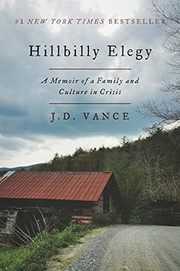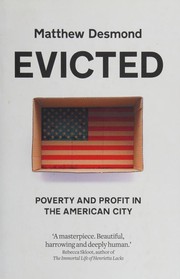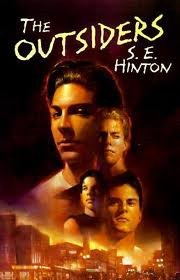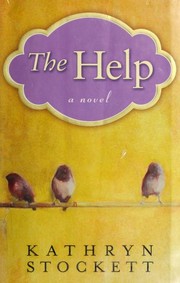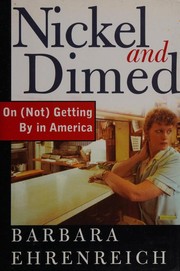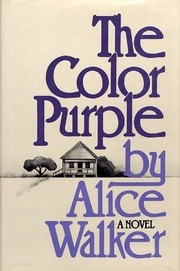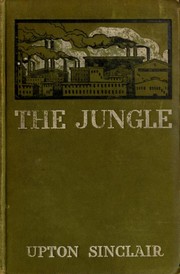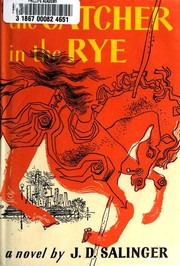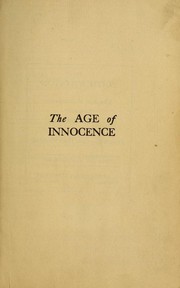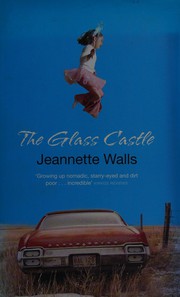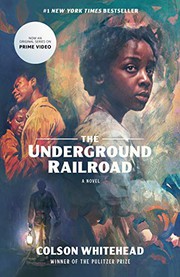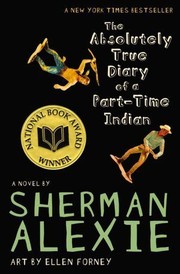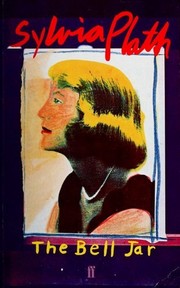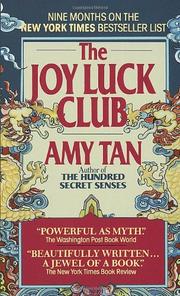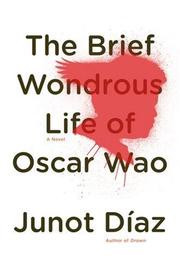Are you interested in exploring the complexities of social class differences through literature? Look no further! We’ve compiled a list of the 20 best books on social class differences that will expand your understanding of this important topic. From thought-provoking novels to insightful non-fiction works, these books offer a diverse and compelling exploration of the impact of social class on individuals and society. Whether you’re a student, a scholar, or simply a curious reader, these books are sure to inspire and inform.
Contents
- 1 20 Best Books About Social Class Differences
- 2 Educated
- 3 Hillbilly Elegy
- 4 The Great Gatsby
- 5 Evicted
- 6 The Outsiders
- 7 The Help
- 8 Nickel and Dimed
- 9 The Kite Runner
- 10 The Color Purple
- 11 The Jungle
- 12 The Grapes of Wrath
- 13 The House on Mango Street
- 14 The Catcher in the Rye
- 15 The Age of Innocence
- 16 The Glass Castle
- 17 The Underground Railroad
- 18 The Absolutely True Diary of a Part-Time Indian
- 19 The Bell Jar
- 20 The Joy Luck Club
- 21 The Brief Wondrous Life of Oscar Wao
- 22 Conclusion
- 23
- 24 20 Croatia Best Books to Read – The 2024 Edition
- 25 Books on Observation: 2024 Update of the Best Titles
- 26 Best Books About Kids With Disabilities. 2024 Edition
20 Best Books About Social Class Differences
Educated
by Tara Westover
Educated by Tara Westover is a compelling memoir that delves into the author’s journey from a strict, isolated upbringing in rural Idaho to earning a PhD from Cambridge University. The book provides a thought-provoking exploration of the impact of family dynamics, education, and the pursuit of knowledge on one’s identity and understanding of the world. Westover’s narrative sheds light on the profound effects of upbringing and the role of education in breaking free from the constraints of one’s background. With themes of resilience, self-discovery, and the complexities of familial relationships, this memoir offers a powerful reflection on the intersection of personal growth and societal expectations. Educated is a captivating and eye-opening read that addresses the complexities of social class differences and the transformative power of education.
Hillbilly Elegy
by J.D. Vance
Hillbilly Elegy by J.D. Vance is a poignant memoir that delves into the complexities of the American working class. Through his own life story, Vance explores the intricate dynamics of social class differences, offering a raw and unflinching portrayal of the struggles, challenges, and triumphs of the hillbilly culture. Set against the backdrop of Appalachia, this book about social class differences sheds light on the impact of poverty, family dynamics, and the elusive pursuit of the American Dream. With a compelling narrative and insightful analysis, Vance provides a thought-provoking examination of the social class differences that continue to shape the fabric of American society. Hillbilly Elegy is a powerful and timely exploration of resilience, identity, and the enduring influence of social class differences.
The Great Gatsby
by F. Scott Fitzgerald
The Great Gatsby, a book about social class differences, is a classic novel by F. Scott Fitzgerald. Set in the Roaring Twenties, the story follows the enigmatic Jay Gatsby and his relentless pursuit of the American Dream. Through the eyes of the narrator, Nick Carraway, readers are invited into the lavish and extravagant world of the wealthy elite on Long Island. The novel delves into themes of love, wealth, and the illusions of the Jazz Age, while also exploring the complexities of social hierarchy and the stark divide between the old money and the nouveau riche. Fitzgerald’s lyrical prose and vivid imagery paint a vivid picture of an era defined by excess and opulence, offering a poignant commentary on the pursuit of the American Dream and the social class differences that permeate society.
Evicted
by Matthew Desmond
Evicted by Matthew Desmond is a powerful and eye-opening book about social class differences in America. Through in-depth research and compelling storytelling, Desmond takes readers into the impoverished neighborhoods of Milwaukee, where families struggle to keep a roof over their heads. The book explores the devastating impact of eviction on individuals and communities, shedding light on the cycle of poverty and inequality that perpetuates in our society. Desmond’s work is a poignant and urgent call to action, urging readers to confront the systemic issues that perpetuate housing insecurity and to empathize with those who are marginalized by social and economic forces. Evicted is a must-read for anyone interested in understanding and addressing the complex issues of poverty and housing instability in America.
The Outsiders
by S.E. Hinton
The Outsiders is a coming-of-age novel by S.E. Hinton that delves into the complexities of social class differences. Set in 1960s Oklahoma, the story follows the struggles and conflicts between two rival teenage groups, the “Greasers” and the “Socs”. The protagonist, Ponyboy Curtis, a Greaser, navigates the challenges of being on the lower end of the social hierarchy while trying to make sense of the violence and prejudice that divides the two groups. The novel explores themes of friendship, identity, and the impact of societal expectations on young individuals. Through its raw and authentic portrayal of adolescent experiences, The Outsiders remains a timeless and powerful social class differences book that continues to resonate with readers of all ages.
The Help
by Kathryn Stockett
The Help by Kathryn Stockett is a compelling novel that delves into the complexities of social class differences in 1960s Mississippi. Set against the backdrop of the Civil Rights Movement, the story follows the lives of three women from different backgrounds as they navigate the rigid social hierarchy of the South. Through their intertwining narratives, the book sheds light on the injustices and prejudices faced by African American maids, as well as the courage and resilience they display in the face of adversity. Stockett’s poignant storytelling and vivid character development make this book about social class differences a thought-provoking and deeply moving read. The Help challenges readers to confront their own perceptions of privilege and power, while also celebrating the strength of the human spirit in the face of oppression.
Nickel and Dimed
by Barbara Ehrenreich
Nickel and Dimed by Barbara Ehrenreich is a thought-provoking book on social class differences. In this eye-opening social experiment, Ehrenreich explores the challenges faced by low-wage workers in America. She immerses herself in various minimum-wage jobs, including waitressing, housekeeping, and retail, to gain firsthand insight into the struggles of those living on the margins of society. Through her experiences, Ehrenreich sheds light on the harsh realities of poverty, the dehumanizing nature of certain jobs, and the difficulties of making ends meet on a low income. Her candid and compelling narrative offers a powerful commentary on the systemic issues surrounding social class differences in the United States. This book about social class differences is a must-read for anyone seeking to understand the complexities of poverty and inequality in contemporary society.
The Kite Runner
by Khaled Hosseini
The Kite Runner by Khaled Hosseini is a powerful and moving novel that delves into the complexities of social class disparities in Afghanistan. The story follows the life of Amir, a wealthy Pashtun boy, and Hassan, his loyal Hazara friend and servant. Set against the backdrop of a changing Afghanistan, the novel explores the deep-seated social class divisions and the impact they have on the characters’ lives. Through vivid storytelling and emotional depth, the book examines themes of privilege, betrayal, and redemption, offering a poignant portrayal of the consequences of social inequality. The Kite Runner is a compelling and thought-provoking read that provides a profound exploration of the impact of social class differences on individuals and society as a whole.
The Color Purple
by Alice Walker
The Color Purple by Alice Walker is a powerful and poignant novel that delves into the complexities of social class differences in the early 20th century. Set in the American South, the story follows Celie, a young African American woman who faces oppression and abuse at the hands of her stepfather and later her husband. Through Celie’s letters, the novel explores the intersecting issues of race, gender, and poverty, shedding light on the struggles and resilience of African American women during this period. Walker’s prose is raw and evocative, capturing the harsh realities of life for those marginalized by society. The Color Purple is a compelling and important book about social class differences that continues to resonate with readers, challenging them to confront the systemic injustices that continue to impact marginalized communities.
The Jungle
by Upton Sinclair
The Jungle by Upton Sinclair is a powerful and harrowing novel that exposes the brutal realities of the early 20th century American meatpacking industry. The story follows Jurgis Rudkus, a Lithuanian immigrant who comes to America seeking a better life but instead finds himself trapped in a cycle of poverty and exploitation. Through Jurgis’ experiences, Sinclair vividly portrays the harsh working conditions, corruption, and social inequality that defined the era. The novel is a searing indictment of the capitalist system and its impact on the lives of working-class individuals. This gripping narrative serves as a poignant book on social class differences, shedding light on the struggles of the oppressed and the stark disparities between the wealthy elite and the impoverished laborers.
The Grapes of Wrath
by John Steinbeck
The Grapes of Wrath, written by John Steinbeck, is a powerful book about social class differences. Set during the Great Depression, it follows the Joad family as they struggle to survive and maintain their dignity in the face of poverty and oppression. The novel explores themes of inequality, exploitation, and the resilience of the human spirit. Steinbeck’s vivid descriptions of the harsh realities faced by the migrant workers, as well as the contrast between the wealthy landowners and the impoverished workers, make it a compelling book on social class differences. The story’s emotional depth and evocative prose have made it a timeless classic that continues to resonate with readers, shedding light on the enduring struggle for justice and equality.
The House on Mango Street
by Sandra Cisneros
The House on Mango Street by Sandra Cisneros is a captivating coming-of-age novel that delves into the experiences of a young Latina girl growing up in a working-class neighborhood in Chicago. Through a series of vignettes, the protagonist, Esperanza, navigates the complexities of adolescence and grapples with the challenges of her environment, including poverty, gender roles, and cultural identity. Cisneros skillfully explores the nuances of social class disparities, shedding light on the impact of economic inequality on individuals and communities. The novel offers a poignant exploration of the struggles and triumphs of those living on the margins of society, making it a powerful book about social class differences that resonates with readers of all backgrounds.
The Catcher in the Rye
by J.D. Salinger
The Catcher in the Rye by J.D. Salinger is a timeless coming-of-age novel that delves into the complexities of adolescence and the struggles of the protagonist, Holden Caulfield. The book follows Holden as he navigates his way through the adult world, grappling with feelings of alienation, disillusionment, and a yearning for authenticity. As he roams the streets of New York City, Salinger’s vivid and authentic writing captures the essence of teenage angst and rebellion. With its exploration of identity, rebellion, and alienation, The Catcher in the Rye has become a classic that continues to resonate with readers of all ages. The novel also touches on the theme of social class differences, shedding light on the impact of privilege and societal expectations on young people.
The Age of Innocence
by Edith Wharton
The Age of Innocence, written by Edith Wharton, is a captivating novel that delves into the complexities of societal expectations and the constraints of conformity in the high society of 1870s New York. The story follows Newland Archer, a young lawyer who becomes entangled in a love triangle with his fiancée, May Welland, and her cousin, the unconventional and free-spirited Countess Ellen Olenska. Set against the backdrop of lavish balls, extravagant mansions, and strict social etiquette, the novel explores the intricate dynamics of the upper class and the unspoken rules that govern their lives. Wharton’s compelling narrative provides a thought-provoking insight into the nuances of social hierarchy and the struggles of individuals caught between tradition and personal desires. The Age of Innocence is a timeless classic that offers a poignant portrayal of the complexities of social class differences.
The Glass Castle
by Jeannette Walls
The Glass Castle by Jeannette Walls is a captivating memoir that delves into the author’s tumultuous upbringing in a dysfunctional family. The book offers a profound exploration of the impact of poverty and family dynamics on personal growth. Walls vividly portrays her experiences growing up in a nomadic and impoverished household, highlighting the resilience and creativity that she and her siblings developed in the face of adversity. Through her poignant storytelling, Walls provides a profound insight into the complexities of family relationships and the enduring spirit of hope in the face of challenging circumstances. The Glass Castle is a compelling and thought-provoking book on social class differences that challenges readers to reflect on the power of perseverance and the resilience of the human spirit.
The Underground Railroad
by Colson Whitehead
The Underground Railroad by Colson Whitehead is a powerful and gripping novel that delves into the harrowing experiences of slavery in America. The story follows Cora, a young slave on a Georgia cotton plantation, as she makes a daring escape via the underground railroad, a secret network of routes and safe houses used by slaves seeking freedom. Through Cora’s journey, Whitehead skillfully explores the brutal realities of slavery and the resilience of the human spirit. The novel also touches on the complexities of power dynamics, oppression, and the struggle for liberation, making it a compelling book about social class differences. Whitehead’s vivid prose and thought-provoking narrative make The Underground Railroad a must-read for anyone interested in exploring the social class differences and injustices that have shaped American history.
The Absolutely True Diary of a Part-Time Indian
by Sherman Alexie
The Absolutely True Diary of a Part-Time Indian, written by Sherman Alexie, is a compelling coming-of-age novel that delves into the complexities of identity, belonging, and resilience. The story follows Junior, a budding cartoonist, as he navigates the challenges of growing up on the Spokane Indian Reservation. Feeling out of place and seeking a better future, Junior decides to attend a predominantly white school off the reservation. As he straddles two worlds, the book offers a poignant exploration of the book about social class differences and the impact of poverty, racism, and cultural barriers on one’s sense of self. With humor and heart, Alexie’s novel sheds light on the realities of social class differences and the universal quest for acceptance and understanding.
The Bell Jar
by Sylvia Plath
The Bell Jar by Sylvia Plath is a captivating novel that delves into the complexities of mental illness and societal expectations. The story follows Esther Greenwood, a young woman struggling to find her identity and purpose in 1950s America. Plath’s lyrical prose provides a raw and intimate look at Esther’s descent into depression and her battle against the constraints of gender roles and societal pressures.
This book is not just about social class differences, but also about the disparities in opportunities and expectations based on gender and mental health. Plath’s exploration of these themes makes The Bell Jar a timeless and thought-provoking read that continues to resonate with readers today.
The Joy Luck Club
by Amy Tan
The Joy Luck Club by Amy Tan is a captivating book about social class differences and the intricate relationships between mothers and daughters. Set in San Francisco, the novel follows the lives of four Chinese-American immigrant families and their struggles to balance their traditional values with the modern American way of life. Through a series of interconnected stories, the book delves into the complexities of cultural identity, generational conflicts, and the challenges of assimilation. Tan skillfully weaves together the narratives of the eight women, shedding light on the disparities in their social standings and the impact of these differences on their lives. The Joy Luck Club is a poignant exploration of the immigrant experience and the enduring bonds between mothers and daughters, making it a compelling read for anyone interested in the dynamics of family and society.
The Brief Wondrous Life of Oscar Wao
by Junot Díaz
The Brief Wondrous Life of Oscar Wao by Junot Díaz is a captivating novel that delves into the complexities of social class differences. Set in the Dominican Republic and the United States, the story follows the life of the titular character, Oscar Wao, a nerdy and overweight young man who dreams of finding love and success despite his outsider status. Through a mix of magical realism, history, and pop culture references, Díaz explores the impact of social hierarchy, oppression, and prejudice on Oscar and his family. The novel also weaves in the political and cultural landscape of the Dominican Republic, offering a powerful commentary on the interplay of power, identity, and belonging. With its rich prose and deeply human characters, this book about social class differences is a thought-provoking and poignant exploration of the universal desire for acceptance and love.
Conclusion
Exploring the Social Class Differences through literature can be an eye-opening experience. The 20 best books about social class differences offer a compelling insight into the complexities of social hierarchy, inequality, and the human experience. From classic works to contemporary novels, these books provide a thought-provoking and captivating exploration of the impact of social class on individuals and societies. Whether you’re interested in fiction or non-fiction, these books offer a diverse range of perspectives that are sure to challenge and inspire readers.
Which Social Class Differences book is best?
The best book on Social Class Differences can vary with personal preference, but three widely recommended titles are:
Each offers valuable insights and could be a great starting point.
What are the best books to learn about Social Class Differences?
For those looking to learn about Social Class Differences, there is a wealth of literature that can provide a comprehensive understanding of the subject. Some of the most highly recommended books include:
- Educated by Tara Westover,
- Hillbilly Elegy by J.D. Vance,
- The Great Gatsby by F. Scott Fitzgerald,
- Evicted by Matthew Desmond,
- The Outsiders by S.E. Hinton,
- The Help by Kathryn Stockett,
- Nickel and Dimed by Barbara Ehrenreich,
- The Kite Runner by Khaled Hosseini,
- The Color Purple by Alice Walker,
- The Jungle by Upton Sinclair
These books offer a range of perspectives on Social Class Differences, covering various aspects and approaches to the subject.
What are the best books on Social Class Differences?
The best books on Social Class Differences include:
- Educated by Tara Westover,
- Hillbilly Elegy by J.D. Vance,
- The Grapes of Wrath by John Steinbeck,
- The House on Mango Street by Sandra Cisneros,
- The Kite Runner by Khaled Hosseini,
- The Help by Kathryn Stockett.
Each offers unique insights into the subject. While these books on the topic of Social Class Differences are highly regarded, it’s important to note that any list of ‘best’ books is subjective and reflects a range of opinions.
What are the best Social Class Differences books of all time?
Choosing the best Social Class Differences books of all time can vary depending on who you ask, but seven titles that are often celebrated include
- Educated by Tara Westover,
- Hillbilly Elegy by J.D. Vance,
- The Outsiders by S.E. Hinton,
- The Kite Runner by Khaled Hosseini,
- The Jungle by Upton Sinclair,
- The House on Mango Street by Sandra Cisneros,
- and The Grapes of Wrath by John Steinbeck.
Each of these books has made a significant impact in the field of Social Class Differences and continues to be influential today.


